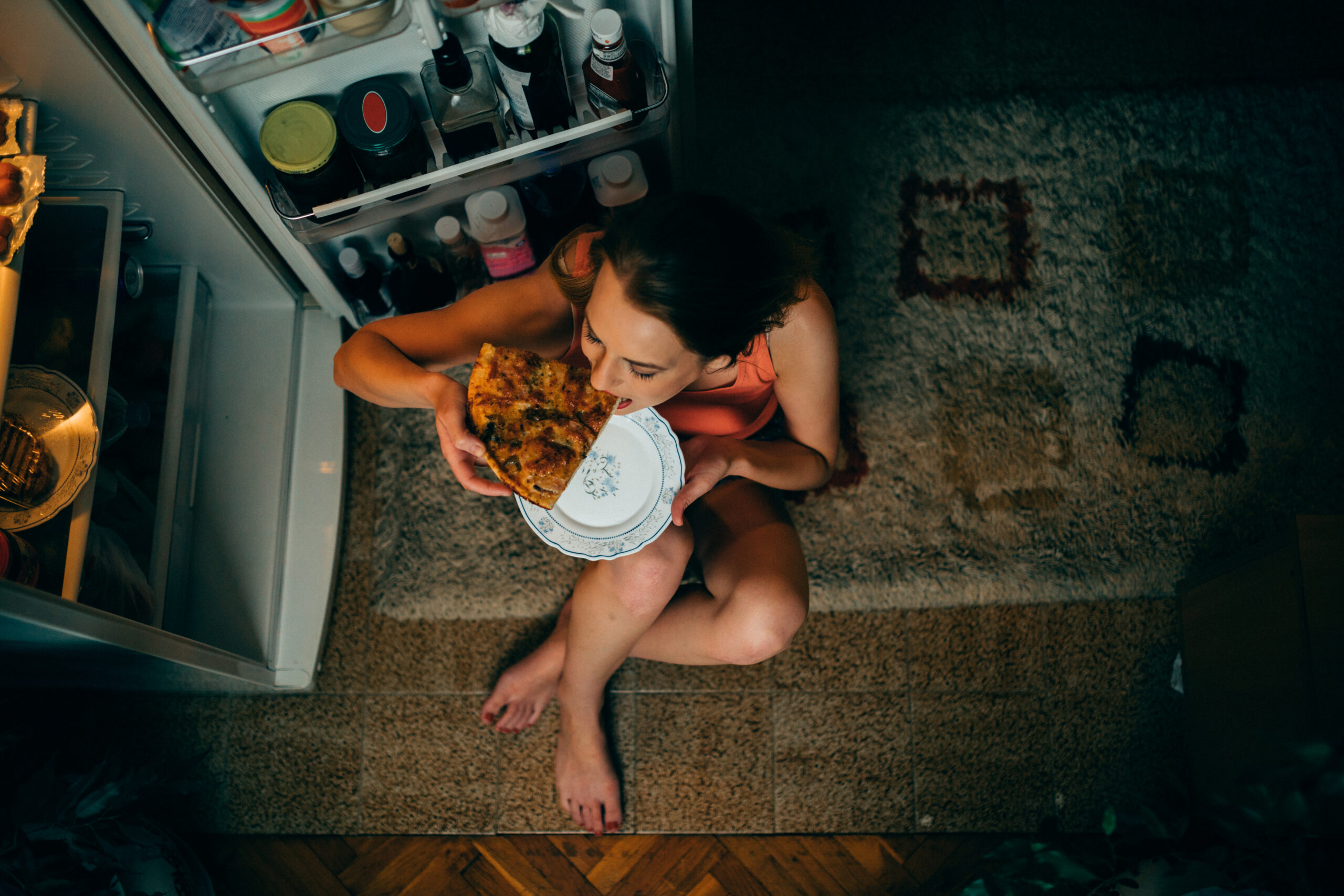
I used to sit in the dark a few nights a week and eat jars of jelly, boxes of cereal, and loaves of bread. I grew up in the '90s — a time when models in magazines were really thin and the whole fat-free craze hit the grocery stores.
My friends and I would go out and get the fat-free cookies and fat-free frozen yogurt because we were sent messages that it was healthy. I always felt hungry after eating a sleeve of fat-free Apple Newtons — even hungrier than when I started eating them. That would trigger me.
I’d sit there, wanting more, and fight with myself about it
I’d throw in an exercise tape, or look through my magazine in hopes the airbrushed, paper-thin models would motivate me to stop eating. Then, I’d give in, finish the other sleeve, and go to the store to get more fat-free sugar.
This cycle started after I struggled with anorexia for over a year. I got down to a scary weight, stopped menstruating, my hair was falling out, and my lips were always blue. I’d been hungry for a really long time and when I started to increase the amount of food I allowed into my body, I kept increasing it. It was as if I didn’t even know when I was full anymore.
I was filled with self-hate
That cycle would continue: the hating, the toxic voice in my head, then the soothing with food which only made me happy right before I’d binge.
I specifically remember always doing it in the dark after everyone else in my family was asleep. It was as if I’d leave my body as soon as I felt the urge to binge and no matter what I did, I didn’t have control in stopping my food ritual. I always went for things that were high in sugar and low in everything else, which made me extremely depressed.
I know now those eating disorders were more about control than anything. My parents were divorced and I couldn't control that. My grandfather had sexually abused me as a young girl and I kept that secret for a long time. I hated my rounder, curvier body, and longed to be straight and skinny.
I finally got the help and healing I needed when I went to college and I didn’t binge or starve myself for over 20 years.
Then, a few months ago, on a Saturday morning post-divorce, I felt so much anxiety and angst that I found myself in the pantry eating handfuls of chocolate chips. Then I moved on to raisins because, you know, they're fat-free and healthier.
It took my breath away when I realized that I was eating unconsciously
Not in the way you do when you're super hungry, have PMS, or elbow deep in the popcorn box while watching a movie. If you’ve ever struggled with disordered eating, you know exactly what I am talking about here.
For a moment, I was 15 again, standing in my parents' kitchen in the dark with a jar of raspberry jam, a fresh loaf of bread, and some fat-free cookies.
I suddenly grew so tired I had to lie down and take a nap. I 100% recognized what I had started to do and I knew it was because my anxiety was extreme that day. I started to track my food, something I hadn’t done since high school, to try and keep myself from bingeing again.
That was the wrong answer — I go by feel these days and it was what worked for me while I was in recovery. There are days when I need more calories and days when I need fewer. I refuse to hold myself to the standard of having the same amount of calories on the day before my period and on a day when I don’t have much of an appetite.
What happens when I track my food is that I feel crappy about myself when I don’t stick to the calories I eat on low-appetite days, all the time. The only way to not get tied up in that is to not do it.
I now know what works for me and for my body
I worked hard to find a way to enjoy all the foods I love and never feel deprived. I worked hard to not let food control my feelings. I worked hard to not let the scale determine my worth.
However, when you are triggered, under stress, or something happens in your life you can’t control — like my divorce — all that work can disappear for a bit. Falling back into old patterns is normal and the most important thing is to recognize that in the long run this isn’t going to serve you at all.
It’s not easy by any means, but it’s a lot easier than reverting back to an old pattern that destroyed my health, my mind, and my self-confidence.
Slip-ups are OK, but the important thing is to get back on track which is what I’m working on now. Just remember: it's never too late.



